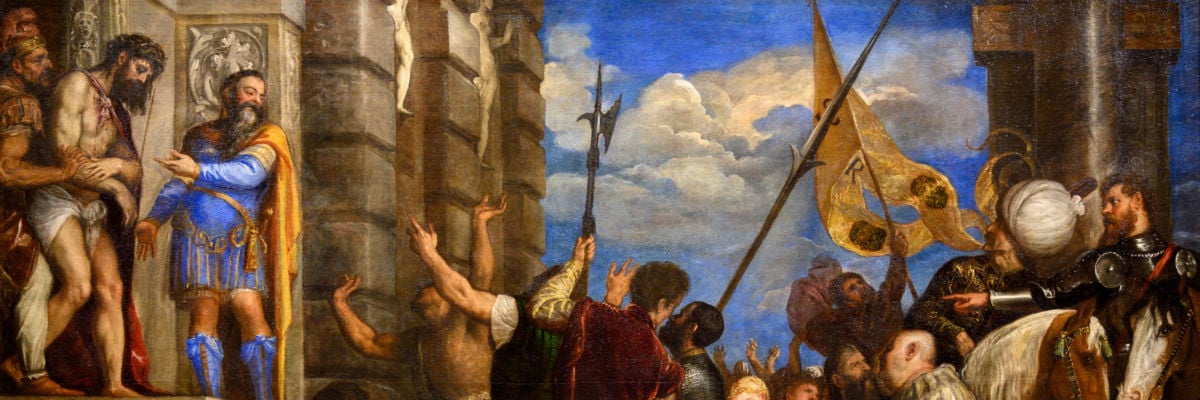
Understanding the Significance of Holy Week 2025
Holy Week is the most sacred time in the liturgical calendar, when the Catholic Church commemorates with Jesus Christ the events of his passion, death, and resurrection. It begins with Palm Sunday and continues through the Easter Triduum—Holy Thursday (also called Maundy Thursday), Good Friday, and Holy Saturday—culminating in the celebration of the Easter Vigil, which commences the joy of Easter Sunday. During this week, we recall our Lord’s washing of his apostles’ feet, the Last Supper, the stations of the cross, the veneration of the cross, and the lighting of the paschal candle, all of which help us enter more deeply into the mystery of our salvation. In this article, we answer the top ten questions people often ask about Holy Week—its meaning, its traditions, what happens on each day, and how we’re called to live it—so you can more fully participate in the Church’s liturgies and prepare your heart for the joy of the Resurrection.
1. How are the dates for Easter, Palm Sunday, and Ash Wednesday determined?
The date of Easter is calculated based on the lunar calendar. So Easter falls on the first Sunday after the first paschal full moon, which is the first full moon on or after March 21. From this date, Palm Sunday is set a week before, and Ash Wednesday is forty-six days prior to Easter Sunday. Understanding these dates helps Catholics prepare for the liturgies of Holy Week. To learn more, see our Q&A on how Easter dates are determined.
2. Why is the Passion account read on Palm Sunday?
Reading the Passion narrative on Palm Sunday sets the tone for Holy Week by focusing on Jesus’ suffering and sacrifice. It helps the faithful reflect on the events that lead up to and encompass our Lord’s redemptive passion and death.. For more, see our brief Q&A on why the Passion account is read on this Sunday.
3. Why is it called “Good” Friday if Jesus suffered and died?
Despite the sorrow of Jesus’ crucifixion, it is called “Good” Friday because his sacrifice opened the way to salvation for humanity. This day emphasizes Jesus’ sacrificial love and the victory of the Resurrection. Learn more in our Good Friday explanation.
4. Does the Easter Vigil count for Easter Sunday Mass?
Yes, participating in the Easter Vigil fulfills one’s obligation for Easter Sunday. The Easter Vigil is a solemn liturgy that celebrates Jesus’ Resurrection and begins with the lighting of the paschal candle and multiple Scripture readings. Discover more in our Easter Vigil Q&A.
5. Why do Catholics practice fasting and abstinence during Lent?
Fasting and abstinence are acts of penitential prayer, which help Catholics grow in the self-discipline of holiness and unite their sacrifices with Jesus’ suffering offered on the cross. These practices are especially meaningful during Holy Week as the faithful prepare for Easter. For more details, se our Q&A on Lenten fasting.
6. Why are images covered in churches during Holy Week?
Covering statues and crucifixes actually starts on the Fifth Sunday of Lent, and it helps Catholics prepare for and focus more deeply on the Passion of Christ without distractions. This tradition leads the faithful into the solemnity of Holy Week. Learn more about covering images here.
7. May the Blessed Sacrament be exposed on Good Friday?
No, the Blessed Sacrament is not exposed on Good Friday, nor is it even in church tabernacles during the Good Friday liturgy, because the Church’s focus is on commemorating Jesus’ Passion and death. For more insight, see our Good Friday liturgy Q&A.
8. Are Confessions allowed on Holy Saturday?
Yes, priests may celebrate the sacrament of confession on Holy Saturday until the start of the Easter Vigil. This allows Catholics a final opportunity for reconciliation before commemorating and celebrating Jesus’ Resurrection. For more information, see our Holy Saturday confession Q&A.
9. When does Lent really end?
Lent officially ends with the start of the Evening Mass of the Lord’s Supper on Holy Thursday, which commences the solemn Easter Triduum that includes Good Friday, Holy Saturday, and Easter Sunday, beginning with the celebration of the Easter Vigil. Learn more about the end of Lent in our related Q&A.
10. Is Easter a pagan holiday?
No, Easter is a Christian celebration of Jesus’ Resurrection, rooted in the Jewish Passover. While some symbols like eggs and bunnies have pre-Christian origins, the core of Easter is entirely focused on Christ’s victory over sin and death. For a detailed explanation, see our Easter origins Q&A.
Explore More About Holy Week, Ash Wednesday, and Easter
Holy Week is a profound journey that leads Catholics to the joy of Easter Sunday, celebrating the Resurrection of our Lord Jesus Christ. For a deeper understanding of the Holy Week timeline, the traditions of the Easter Triduum, and what happens during these sacred days, see our Catholic Answers Guide to Holy Week. If you’re looking to learn more about the start of Lent, explore our Ash Wednesday guide; and for insights on celebrating the Resurrection of Jesus, check out our Easter Sunday Guide. May this Holy Week draw you closer to Christ and his everlasting love.


